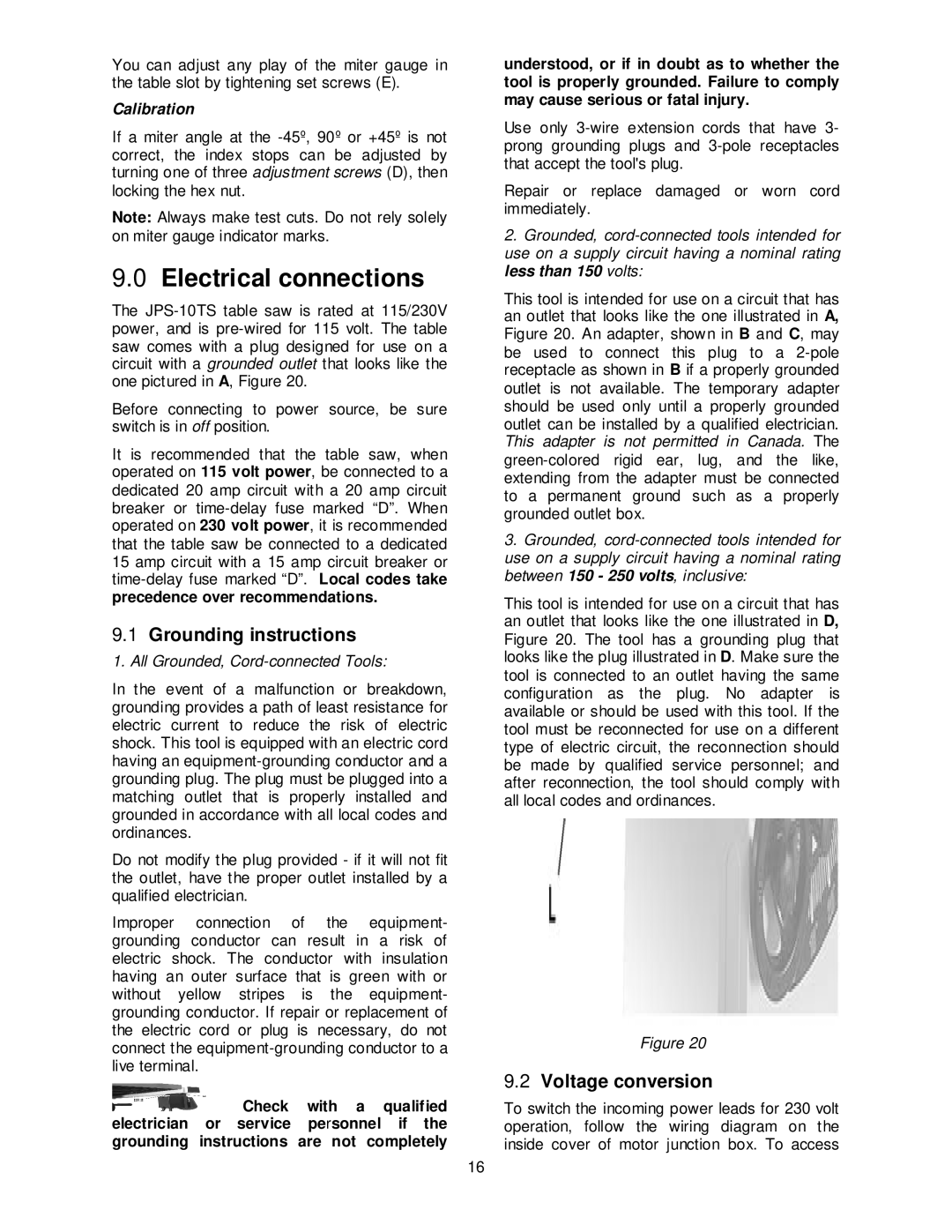
You can adjust any play of the miter gauge in the table slot by tightening set screws (E).
Calibration
If a miter angle at the
Note: Always make test cuts. Do not rely solely on miter gauge indicator marks.
9.0Electrical connections
The
Before connecting to power source, be sure switch is in off position.
It is recommended that the table saw, when operated on 115 volt power, be connected to a dedicated 20 amp circuit with a 20 amp circuit breaker or
9.1Grounding instructions
1. All Grounded, Cord-connected Tools:
In the event of a malfunction or breakdown, grounding provides a path of least resistance for electric current to reduce the risk of electric shock. This tool is equipped with an electric cord having an
Do not modify the plug provided - if it will not fit the outlet, have the proper outlet installed by a qualified electrician.
Improper connection of the equipment- grounding conductor can result in a risk of electric shock. The conductor with insulation having an outer surface that is green with or without yellow stripes is the equipment- grounding conductor. If repair or replacement of the electric cord or plug is necessary, do not connect the
![]() Check with a qualified electrician or service personnel if the grounding instructions are not completely
Check with a qualified electrician or service personnel if the grounding instructions are not completely
understood, or if in doubt as to whether the tool is properly grounded. Failure to comply may cause serious or fatal injury.
Use only
Repair or replace damaged or worn cord immediately.
2.Grounded,
This tool is intended for use on a circuit that has an outlet that looks like the one illustrated in A, Figure 20. An adapter, shown in B and C, may be used to connect this plug to a
3.Grounded,
This tool is intended for use on a circuit that has an outlet that looks like the one illustrated in D, Figure 20. The tool has a grounding plug that looks like the plug illustrated in D. Make sure the tool is connected to an outlet having the same configuration as the plug. No adapter is available or should be used with this tool. If the tool must be reconnected for use on a different type of electric circuit, the reconnection should be made by qualified service personnel; and after reconnection, the tool should comply with all local codes and ordinances.
Figure 20
9.2Voltage conversion
To switch the incoming power leads for 230 volt operation, follow the wiring diagram on the inside cover of motor junction box. To access
16
